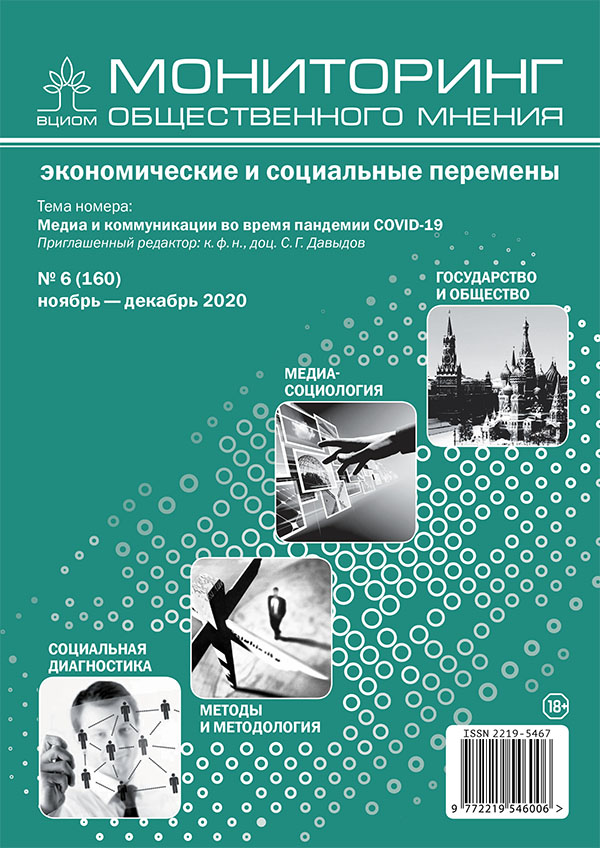Vulnerable Groups in Disasters: Solidarity and Trust in Government as the Basis for Migrant Strategies in Russia During the COVID-19 Pandemic
DOI:
https://doi.org/10.14515/monitoring.2020.6.1714Keywords:
vulnerability, coronavirus, COVID-19, migrants, Russia, emergencies, catastropheAbstract
Migrants are one of the vulnerable groups for whom confronting an emergency, whether it be a hurricane or an epidemic, usually carries a particularly high risk that can be mitigated or intensified depending on the reaction of the group. Available academic literature largely contains expert opinions and is less likely to be grounded in empirical evidence. This literature demonstrates that the situation of migrants across different countries, including Russia, amidst the Covid-19 pandemic can be qualified as vulnerable in terms of epidemiological and economic risks. However, attempts to find studies describing how exactly migrants in Russia responded to the coronavirus pandemic ended in a failure. The article defines the strategies of migrants in Russia in terms of their reaction to the spring 2020 lockdown. The study is based on the data from an online survey conducted among migrants from Kyrgyzstan and Uzbekistan and non-migrants (N = 2074) using targeting on social media (Vkontakte and Instagram). Four strategies were constructed on the basis of two variables: (1) a high or low level of solidarity and (2) trust or distrust in the Russian state. Unlike non-migrants, migrants are less likely to adopt a strategy implying low levels of solidarity and distrust in the state and more likely to adhere to the opposite strategies (high level of solidarity and trust in the state — or at least one of these elements). Based on the characteristics of the migrant situation in Russia, the authors assume that it was the prevalence of those strategies that contributed to the fact that the migrants in Russia were able to survive the first wave of the coronavirus crisis and lockdown suffering fewer losses than expected.
Acknowledgments. The article is based on the research work “Analyzing the characteristics of the foreign migrant settlement in Russia because of the necessity to integrate into the Russian society”, RANEPA, 2020.
Downloads
Published
How to Cite
Issue
Section
License
Copyright (c) 2020 Monitoring of Public Opinion: Economic and Social Changes Journal (Public Opinion Monitoring) ISSN 2219-5467

This work is licensed under a Creative Commons Attribution-NonCommercial-ShareAlike 4.0 International License.






